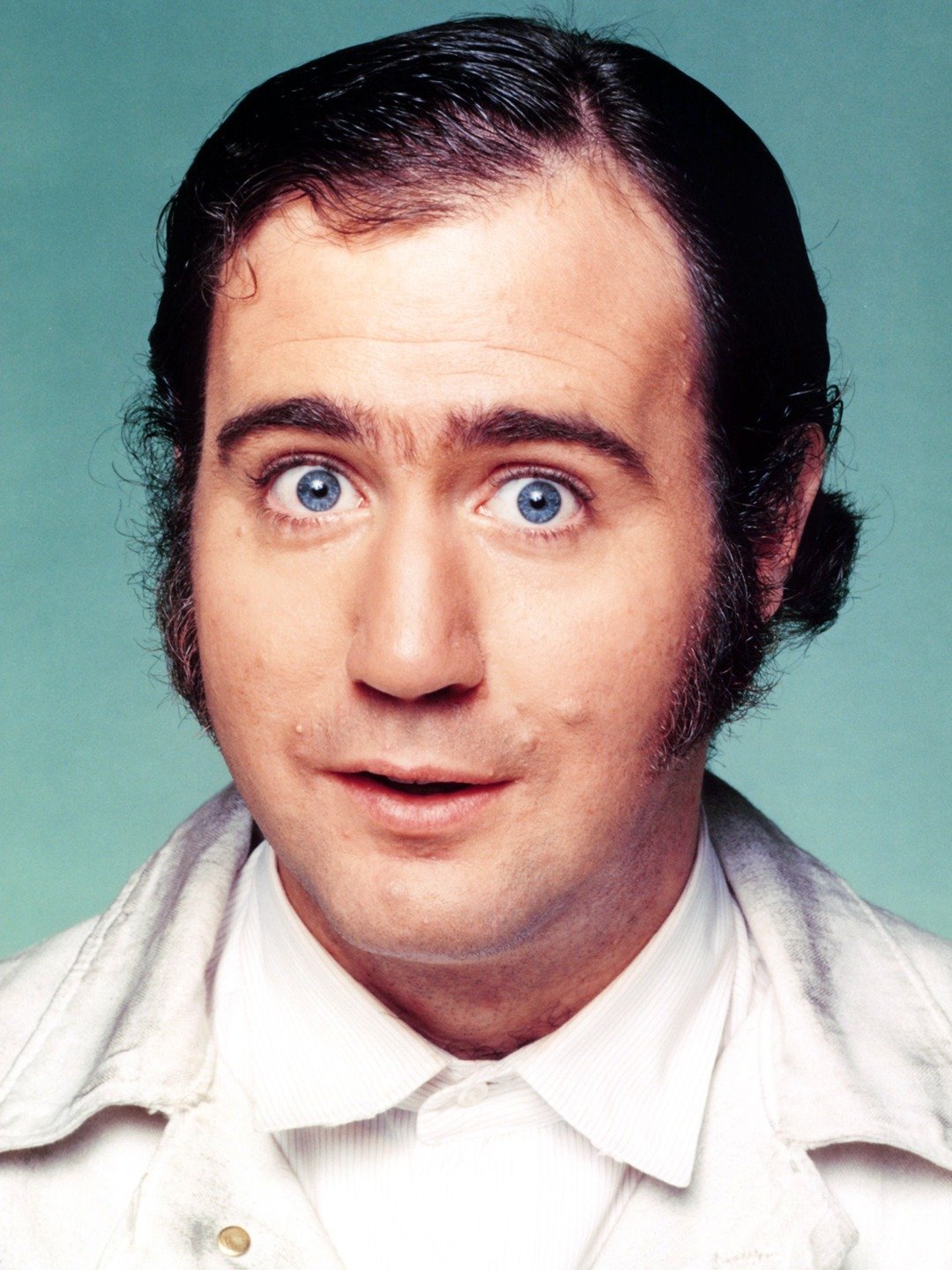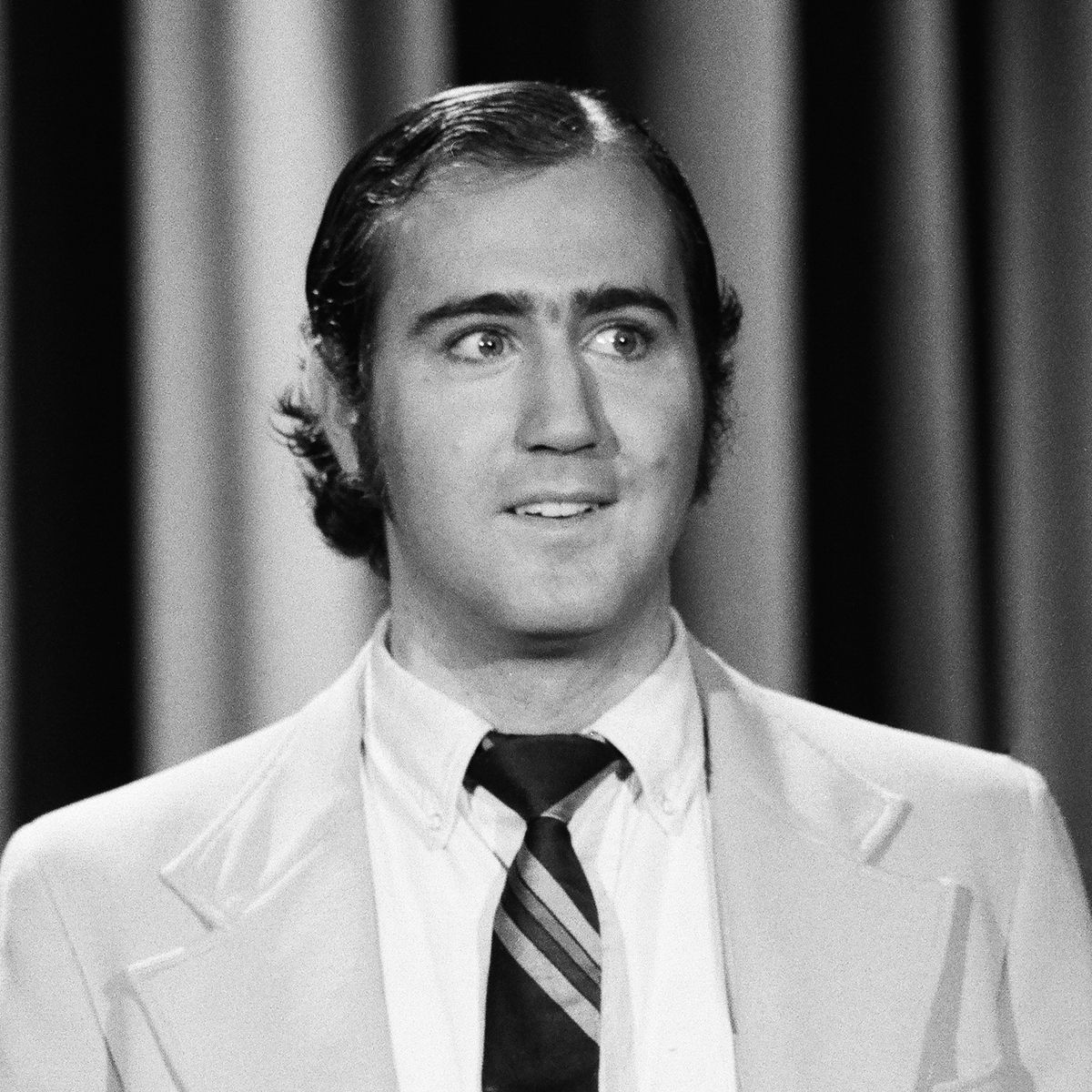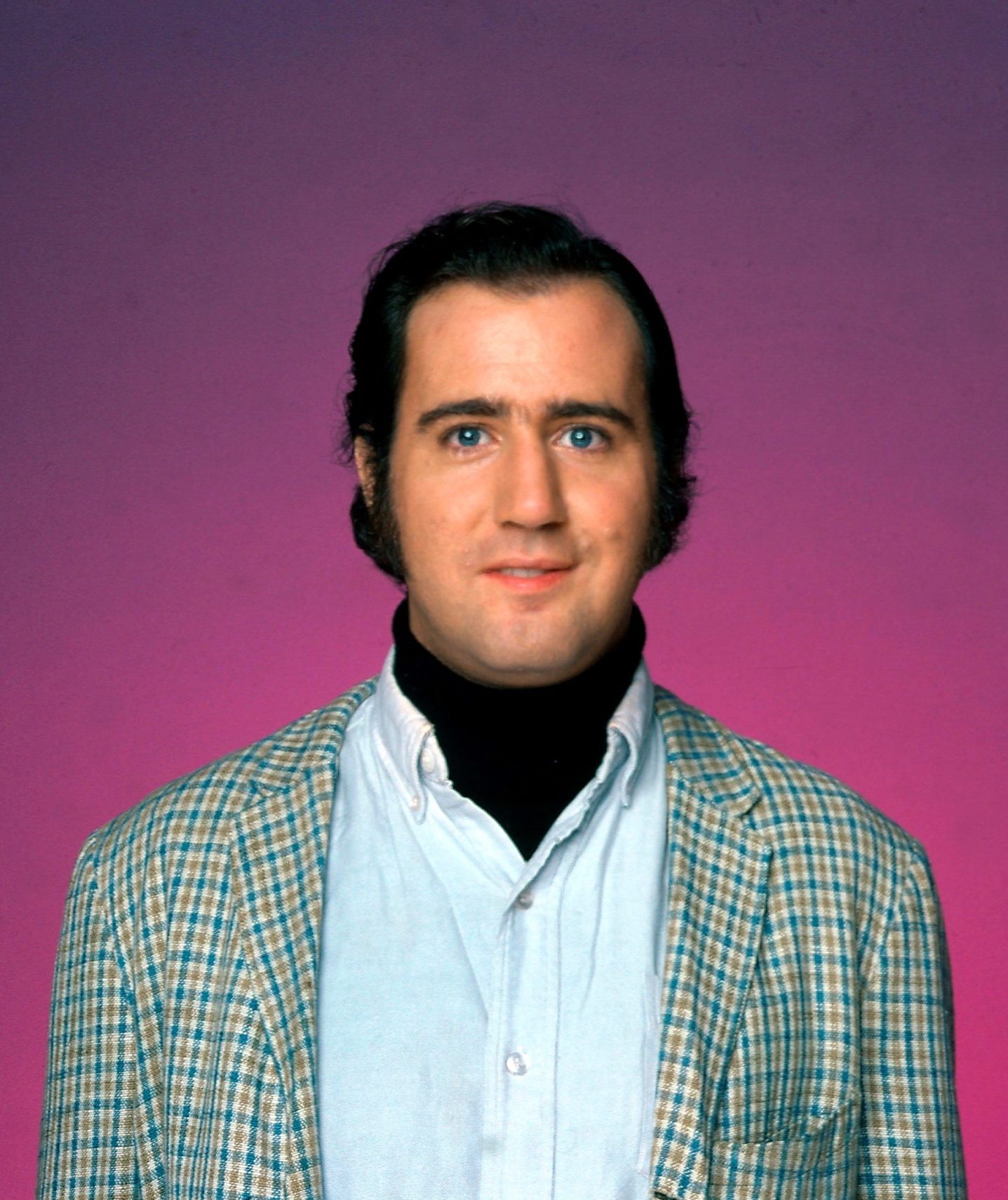Andy Kaufman: Life, Death & Documentary - The Truth Revealed!
Was Andy Kaufman's death a tragic end or the ultimate performance? The enigma surrounding his life and career, punctuated by a death shrouded in speculation, continues to captivate and confound, solidifying his status as a true performance art icon.
Andrew Geoffrey Kaufman, born on January 17, 1949, in New York City, and later known as Andy Kaufman, wasn't just a comedian; he was an experience, a provocateur, and a master of blurring the lines between reality and performance. His untimely death from cancer on May 16, 1984, at the age of 35, only amplified the mystique. Was it genuine, or another elaborate Kaufmanesque prank? This question has lingered for decades, fueling conspiracy theories and cementing his legacy as one of the most perplexing and influential figures in comedy history. A new documentary, "Thank You Very Much," directed by Alex Braverman and premiering at the 80th Venice Film Festival in 2023, attempts to peel back some of the layers, offering a portrait of Kaufman's personal life and career, but perhaps deepening the mystery in the process.
| Category | Information |
|---|---|
| Full Name | Andrew Geoffrey Kaufman (Andy Kaufman) |
| Birth Date | January 17, 1949 |
| Birth Place | New York City, New York, U.S. |
| Death Date | May 16, 1984 |
| Death Place | Los Angeles, California, U.S. |
| Occupation | Entertainer, Actor, Performance Artist, Comedian (though he disliked the term) |
| Parents | Stanley Kaufman, Janice Kaufman |
| Siblings | Michael Kaufman, Carol Kaufman |
| Known For | Latka Gravas in "Taxi," Tony Clifton character, groundbreaking performance art |
| Education | Grahm Junior College |
| Early Career | Comedy clubs in the Northeast (early 1970s) |
| Notable Appearances | "Saturday Night Live," "Late Night with David Letterman," "Fridays," "Taxi" |
| Controversies | Wrestling matches with Jerry Lawler, Tony Clifton character antics, general on-stage behavior |
| Style | Anti-comedy, performance art, blurring the lines between reality and fiction, challenging audience expectations |
| Legacy | Influenced countless comedians and performers, continues to be a subject of fascination and debate |
| Reference | Britannica - Andy Kaufman Biography |
Growing up in Great Neck, Long Island, alongside his younger siblings Michael and Carol, Kaufman exhibited an early penchant for performance. Even as a toddler, barely nine months old, his mother, Janice, recognized his innate love for music and dance as he bounced around his crib. This inherent desire to entertain blossomed in his childhood. By the age of eight, despite being described as shy, he discovered the power of making people laugh. He began staging elaborate acts, transforming his bedroom into a personal theater. One iconic early performance involved Kaufman standing on a bare stage with a record player, playing the Mighty Mouse theme song, a seemingly simple act that hinted at his future subversion of comedic norms.
Kaufman's aversion to the term "comedian" is central to understanding his art. He wasn't interested in simple laughs; he sought to evoke genuine emotional responses from his audience, be it joy, confusion, or even discomfort. He aimed for emotional involvement, regardless of the specific emotion. He considered himself a song and dance man, a performer in the truest sense, rather than a joke teller. This philosophy underpinned all his work, from his seemingly innocent foreign man character to the abrasive and offensive Tony Clifton.
His early career saw him honing his craft in the comedy clubs of the Northeast in the early 1970s. His unique act, a blend of awkwardness, unexpected moments, and genuine talent, quickly gained attention. This led to a pivotal moment: an invitation to perform on the inaugural broadcast of "Saturday Night Live." This platform catapulted him into the national spotlight, allowing him to showcase his unconventional brand of humor to a wider audience.
Kaufmans appearances on "Saturday Night Live," "Late Night with David Letterman," and "Fridays" became legendary. He wasn't just performing; he was challenging the very nature of performance, often blurring the lines between his on-stage persona and his real self. He created characters that were both hilarious and unsettling, pushing the boundaries of what was acceptable in comedy. He brought the house down, not always with laughter, but always with a reaction.
One of his most infamous creations was Tony Clifton, a boorish and offensive lounge singer. Clifton was everything Kaufman wasn't: loud, obnoxious, and utterly lacking in self-awareness. The character was so convincing that many people believed he was a real person, leading to numerous on-set conflicts and controversies. Kaufman often insisted that Clifton be treated as a separate entity, even demanding separate dressing rooms and contracts for the character.
Another defining moment in Kaufman's career was his feud with professional wrestler Jerry Lawler. The staged rivalry began in 1982 when Kaufman declared himself the "Inter-Gender Wrestling Champion of the World" and offered to wrestle any woman. Lawler, a seasoned wrestler, took exception to Kaufman's antics, leading to a staged confrontation on "Late Night with David Letterman." The appearance ended with Lawler slapping Kaufman, seemingly knocking him unconscious. The incident sparked outrage and controversy, with many believing the feud was real. It wasn't until years later that the two men revealed the entire affair was a planned performance, highlighting Kaufman's commitment to blurring the lines between reality and fiction.
The documentary "Thank You Very Much" attempts to grapple with these complexities, exploring the various facets of Kaufman's life and career. It showcases his stage bits, his personal struggles, and the impact he had on those around him. The film uses Kaufman's own direction as a starting point, an innovative format that immediately immerses the viewer in his unique brand of humor. Through interviews with friends, family, and colleagues, the documentary paints a picture of a man who was both brilliant and deeply troubled, a genius who constantly challenged the status quo.
However, the documentary also raises questions about the very nature of truth and deception, themes that were central to Kaufman's work. Was he truly sick? Did he fake his death as the ultimate prank? The film doesn't offer definitive answers, instead, leaving the audience to grapple with the same uncertainties that have surrounded Kaufman's life for decades. His best friend even shares his theory in the documentary, further fueling the speculation.
The most popular conspiracy theory surrounding Kaufman's death posits that he orchestrated the entire thing as a hoax. This theory gained traction with the release of the 2014 book "Andy Kaufman: The Truth, Finally," co-authored by his former girlfriend Lynne Margulies and his writing partner Bob Zmuda. The book claimed that Kaufman was still alive, living in hiding, and planning to return to the public eye at some point. While the claims have been widely disputed, they continue to fuel the myth surrounding his death.
Regardless of the truth, Andy Kaufman's influence on comedy and performance art is undeniable. He challenged conventional boundaries, defied expectations, and forced audiences to question what they were seeing. He was a master of discomfort, using awkwardness and confrontation to provoke emotional responses. He loathed the word "comedian" because his aim was not to simply elicit laughter, but to engage his audience on a deeper, more meaningful level.
Even though Andy Kaufman was famous for less than a decade, his impact on comedy and his ability to perplex people will endure. His appearances on shows such as "Saturday Night Live," "Late Night with David Letterman," and "Fridays" cemented his status as a groundbreaking performer. He was often labeled as a performance artist, a term that perhaps best encapsulates his approach to entertainment.
Alex Bravermans documentary, Thank You Very Much, playing at the M.V. Film Center starting March 28, might leave you pondering the true identity of Andy Kaufman. It presents a portrait of a man who was both a comedic genius and an enigma, a performer who constantly challenged the boundaries of entertainment.
Andrew "Andy" Kaufman was an American entertainer, actor, and performance artist who defied easy categorization. While often called a comedian, Kaufman himself rejected the label, preferring to see himself as a song and dance man. His unique style, characterized by anti-comedy, pranks, and the blurring of reality and fiction, made him one of the most influential and controversial figures in the history of comedy.
Born on January 17, 1949, in New York City, Kaufman began his journey into the world of entertainment at a young age. He would stage elaborate acts in his bedroom, foreshadowing the unconventional performances that would later define his career. His parents, Stanley and Janice Kaufman, supported his creative endeavors, raising him and his two younger siblings, Michael and Carol, in the Great Neck region of Long Island.
Kaufman's early years were marked by a fascination with performance. One anecdote recounts how, at just nine months old, his mother discovered his love for music as he danced in his crib. This innate passion for entertaining would eventually lead him to explore various avenues of performance, from stand-up comedy to television acting to professional wrestling.
After graduating from Grahm Junior College, Kaufman embarked on his professional career, working in various comedy clubs in the Northeast during the early 1970s. His act was unlike anything audiences had seen before. He would often perform mundane tasks on stage, such as reading from "The Great Gatsby" in its entirety or simply standing silently, challenging the audience's expectations of what a comedy show should be.
His big break came when he was offered a spot on the inaugural broadcast of "Saturday Night Live." This appearance exposed him to a national audience and allowed him to showcase his unique brand of humor. He quickly became a fan favorite, known for his bizarre characters and unpredictable performances.
One of Kaufman's most famous characters was Latka Gravas, the foreign mechanic on the hit television show "Taxi." While Kaufman appreciated the financial security that "Taxi" provided, he often felt constrained by the role. He saw Latka as a character that was imposed upon him, rather than one that he had created himself.
This frustration led him to create another, even more outrageous character: Tony Clifton. Clifton was everything that Latka wasn't: loud, obnoxious, and offensive. He was a deliberately unlikable character, designed to provoke and challenge audiences. Kaufman often went to great lengths to maintain the illusion that Clifton was a real person, hiring actors to play the role and even staging on-set conflicts.
Kaufman's feud with Jerry Lawler was another example of his commitment to blurring the lines between reality and fiction. The staged rivalry, which involved wrestling matches and a memorable appearance on "Late Night with David Letterman," was so convincing that many people believed it was real. It wasn't until years later that Lawler and Kaufman revealed the entire affair was a performance.
Despite his success, Kaufman remained an enigmatic figure. He was known for his eccentric behavior, his unwavering commitment to his art, and his refusal to conform to conventional expectations. He challenged the audience's perception of comedy, and they continue to do so even after his death.
Find out how he died, why he was rumored to be alive, and how he influenced other performers. The circumstances surrounding his death continue to fuel speculation and conspiracy theories, adding to his mystique. The question of whether he faked his death remains a topic of debate among fans and critics alike.
Learn about his unique style, his controversies, his death, and his legacy. His unique style, which blended elements of performance art, anti-comedy, and social commentary, set him apart from his contemporaries. His controversies, which often involved pushing the boundaries of good taste and challenging audience expectations, cemented his reputation as a provocateur.
Explore his early years, college experiences, TV appearances, movies, wrestling career, and more. His journey from a shy child staging performances in his bedroom to a national figure known for his outlandish characters and unpredictable antics is a testament to his creative genius and his unwavering commitment to his art. His exploration of college, his various TV appearances, his movies, wrestling and more defined his legacy.
The life and work of the late comedian and 'Taxi' star Andy Kaufman are examined in the new documentary 'Thank You Very Much.' The film, directed by Alex Braverman, offers a fresh perspective on Kaufman's life, exploring his early influences, his creative process, and the controversies that surrounded him. Producers Jenifer Westphal and Joe Plummer talk to people about the enigma that was Andy Kaufman, creating a compelling and thought-provoking portrait of a complex and fascinating artist.



Detail Author:
- Name : Prof. Helene Lesch III
- Username : tstreich
- Email : marquis56@gmail.com
- Birthdate : 1987-02-28
- Address : 1348 Runolfsdottir Throughway Riverview, ND 49156
- Phone : 1-628-969-8631
- Company : Corwin LLC
- Job : Oil Service Unit Operator
- Bio : Ut deserunt molestias delectus mollitia consequuntur tempora veniam. Ut quia eius consequuntur quisquam atque ut harum.
Socials
facebook:
- url : https://facebook.com/chartmann
- username : chartmann
- bio : Sed itaque expedita aspernatur dicta.
- followers : 4568
- following : 2528
instagram:
- url : https://instagram.com/hartmann2017
- username : hartmann2017
- bio : Sed quo magnam eum quam. Enim eos quasi sapiente labore et suscipit sunt aliquid.
- followers : 3156
- following : 1827
twitter:
- url : https://twitter.com/carmel_hartmann
- username : carmel_hartmann
- bio : At voluptates accusantium totam ea aperiam. Vitae distinctio modi laudantium omnis corporis. Incidunt et quis consequatur et. Nihil totam rerum et.
- followers : 6055
- following : 402
linkedin:
- url : https://linkedin.com/in/carmel1323
- username : carmel1323
- bio : Rem est sint ab alias quod accusamus.
- followers : 2752
- following : 449